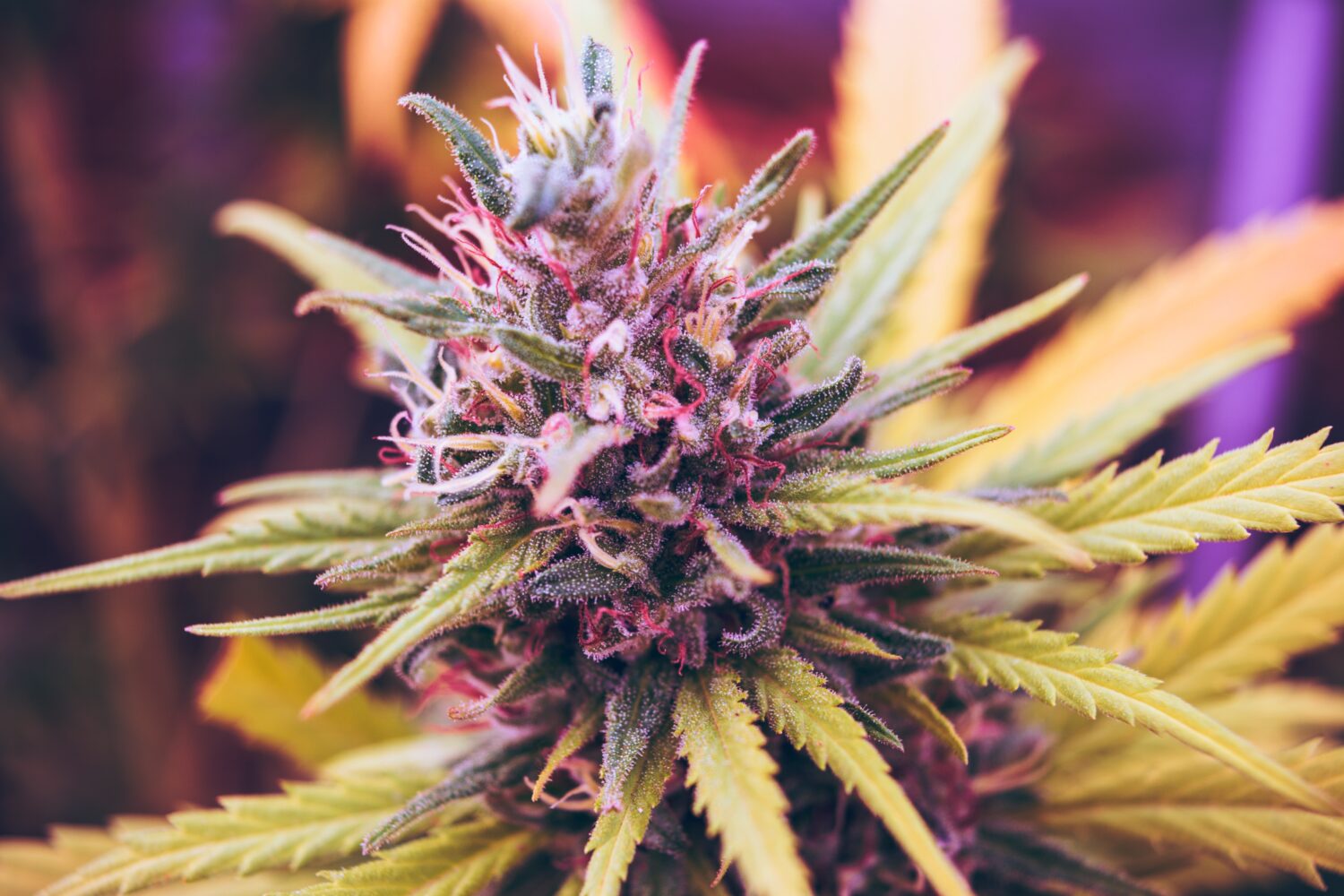A new study funded by the National Institute on Drug Abuse (NIDA) has found that a citrusy-smelling terpene in marijuana could help ease anxiety and paranoia associated with THC. The findings, researchers say, could help unlock the maximum therapeutic benefit of THC and protect public health.
Published in the latest issue of the journal Drug and Alcohol Dependence, the new paper says that subjects who vaporized the terpene D-limonene along with a dose of THC experienced less anxiety and paranoia compared to those who consumed THC alone.
“Ratings of anxiety-like subjective effects qualitatively decreased as D-limonene dose increased,” the report says, “and concurrent administration of 30 mg THC+15 mg D-limonene significantly reduced ratings of ‘anxious/nervous’ and ‘paranoid’ compared with 30 mg THC alone.”
Although D-limonene modulated the anxiety-like effects, however, it seemed to have minimal effect otherwise on participants’ experiences.
The addition of D-limonene, which is found in many citrus fruits in addition to cannabis and smells like oranges, “had little impact on other common acute subjective, cognitive, or physiological effects of THC,” researchers found. Inhaling the vaporized terpene by itself, meanwhile, “did not produce any acute effects that differ from placebo.”
To arrive at the conclusions, researchers had participants inhale vaporized D-limonene alone, THC alone, THC and D-limonene together or placebo (distilled water). They then recorded subjects’ vital signs, cognitive performance and subjective drug effects and mood. Measurements were taken immediately following exposure as well as periodically afterward over a course of six hours.
“This experiment showed that simultaneously administering vaporized D-limonene and THC reduced subjective indices of THC-induced anxiety in a dose-orderly manner,” the 12-author study found. “However, co-administration of D-limonene with THC did not systematically alter other subjective, cognitive, or physiological effects of THC, and D-limonene did not elicit any pharmacodynamic effects when compared with placebo.”
The report says it’s “among the first clinical studies to demonstrate the validity of the cannabis entourage effect, which theorizes that THC and other constituents of the plant interact in meaningful ways that alter acute cannabis effects.”
Its authors—from institutions such as Johns Hopkins University School of Medicine, University of Colorado Anschutz Medical Campus and Vashon, Washington-based CReDO Science—wrote that the findings contribute to a better understanding of the workings of the cannabis plant, which could play a factor in both medical treatment and public policy.
“Given the growing interest in the use of cannabis for medicinal purposes and expanding legalization of cannabis for nonmedicinal purposes,” they wrote, “further understanding of which constituents may increase the safety profile of cannabis by attenuating acute adverse effects (e.g., anxiety and paranoia), and which constituents may exacerbate adverse effects, is paramount for advancing the use of cannabinoids in medicine and, more broadly, protecting public health.”
Pharmaceutical formulations of THC, such as dronabinol (Marinol), and chemical analogues of THC are already broadly approved for treating certain severe health conditions, they noted. “However, use of these medications is limited, in part, due to a narrow therapeutic index (i.e., an effective therapeutic dose is close to a dose that may elicit an adverse event),” the report says.
“Thus, the development of novel THC-based medications that mitigate the anxiogenic effects of THC, hence widening its therapeutic index, could be of considerable clinical benefit,” it continues, calling for further “rigorous controlled clinical studies.”
“The results of the present study suggest that the development of novel cannabis product formulations high in D-limonene could be a viable and relatively straightforward strategy to widen the therapeutic window of medicinal cannabis and/or THC and potentially reduce adverse effects associated with non-medicinal cannabis use.”
The new research is part of a growing field of investigation into the entourage effect in cannabis as well as in entheogenic plants and fungi. While Western medicine typically seeks to identify and isolate a single active ingredient, the findings underscore the potentially powerful interactions of various chemical components produced by the plant.
Earlier this year, for example, a study looked at the “collaborative interactions” between cannabinoids, terpenes, flavonoids and other molecules in the plant, concluding that a better understanding of the relationships of various chemical components “is crucial for unraveling cannabis’s complete therapeutic potential.”
A separate study last year found that cannabis products with a more diverse array of natural cannabinoids produced stronger psychoactive experiences in adults, which also lasted longer than the high generated by pure THC.
And a 2018 study found that patients suffering from epilepsy experience better health outcomes—with fewer adverse side effects—when they use plant-based CBD extracts compared to “purified” CBD products.
Scientist last year also discovered “previously unidentified cannabis compounds” called flavorants that they believe are responsible for the unique aromas of different varieties of marijuana. Previously, many had thought terpenes alone were responsible for various smells produced by the plant.
Similar phenomena are also beginning to be recorded around psychedelic plants and fungi. Earlier this month, for example, researchers found that use of full-spectrum psychedelic mushroom extract had a more powerful effect than chemically synthesized psilocybin alone. They said the findings imply that mushrooms, like cannabis, demonstrate an entourage effect. (Full Story)

